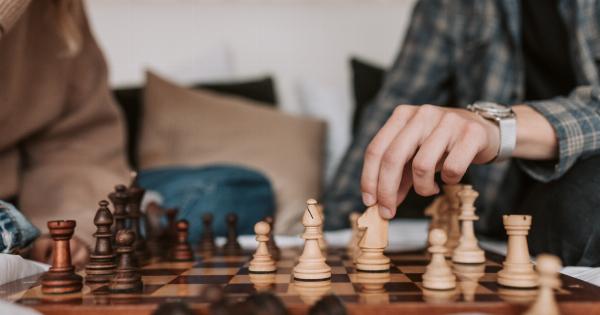Chess is a game of strategy, skill, and imagination. It is also a game of mistakes, where even the best players in the world can make critical errors that cost them the game.
These moments of blunders, where a player makes a wrong move or overlooks a critical aspect of the game, can determine the outcome of a match and leave players wondering: “What went wrong?”.
Blunders Happen to Everyone
It’s important to remember that blunders can happen to anyone. Even the most experienced and skilled players make mistakes. In fact, some of the most famous chess games in history were won by players who made critical errors.
It’s also important to note that blunders are not always the result of a lack of skill or preparation. Sometimes, they occur simply because of a momentary lapse in concentration or a misjudgment of the board.
The Psychology of Chess Blunders
The psychology of chess blunders is fascinating. It’s been studied extensively by researchers who have found that there are certain factors that increase the likelihood of a blunder occurring.
These can include fatigue, stress, and anxiety, as well as overconfidence and complacency. Players who feel pressured to win or who are afraid of losing are also more likely to make mistakes.
Preventing Blunders
While it’s impossible to completely eliminate the risk of blunders, there are steps that players can take to reduce the likelihood of making critical errors.
This can include focusing on the game, taking breaks when necessary, and being aware of one’s emotions during gameplay. It’s also important to analyze past mistakes and learn from them, honing one’s skills and strategy through practice and study.
The Importance of Analysis
One of the most important aspects of chess gameplay is analysis. By revisiting past games and examining one’s own mistakes and those of opponents, players can gain a deeper understanding of the game and develop new strategies and techniques.
Analysis can also help players identify patterns and tendencies, allowing them to make better decisions during gameplay and avoid common blunders.
Common Blunders and How to Avoid Them
There are numerous types of blunders that can occur during a chess game, each with its own set of causes and implications. Some of the most common blunders include:.
1. Hanging Pieces
Hanging pieces occur when a player leaves a valuable piece unprotected, allowing the opponent to capture it easily.
This can happen for a variety of reasons, such as failing to see a potential threat or underestimating an opponent’s ability to make a strong move.
To avoid hanging pieces, players should always consider the safety of their pieces before making a move. They should be mindful of potential threats from opponents and consider the possible consequences of each move before acting.
They should also be aware of their opponent’s potential moves and consider how they can counteract them.
2. Forks
Forks occur when an opponent’s piece is able to threaten two or more valuable pieces simultaneously. This can put a player at a significant disadvantage and can be a source of frustration and discouragement.
To avoid forks, players should be mindful of potential threats from their opponent’s pieces and consider how they can position their own pieces to minimize vulnerability.
They should also be aware of their opponent’s potential moves and consider how they can counteract them.
3. Overlooking Checkmates
Checkmates occur when a player’s king is put in a position where it cannot escape capture. This can happen quickly and unexpectedly, and can be a source of embarrassment and frustration for players who overlook it.
To avoid overlooking checkmates, players should always be mindful of the position of their king and consider potential threats from their opponent’s pieces.
They should also consider the possible implications of each move and be aware of their opponent’s potential moves and responses.
4. Tactical Oversights
Tactical oversights occur when a player fails to consider the implications of a move, either by misjudging the board or underestimating their opponent’s ability to respond. This can result in missed opportunities and lost advantages.
To avoid tactical oversights, players should always consider the possible consequences of each move and be aware of their opponent’s potential responses.
They should also be mindful of potential threats from their opponent’s pieces and consider how they can counteract them.
Conclusion
Blunders are a natural part of chess gameplay, and even the best players in the world are not immune to them.
However, by understanding the psychology of blunders and taking steps to reduce the likelihood of their occurrence, players can minimize their impact and improve their overall gameplay. Through analysis and practice, players can hone their skills and develop new strategies that allow them to become more competitive and successful chess players.






























